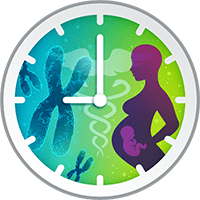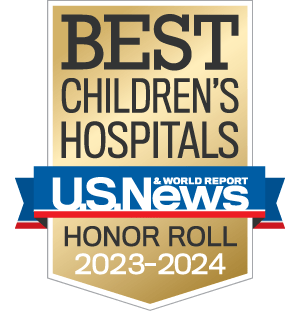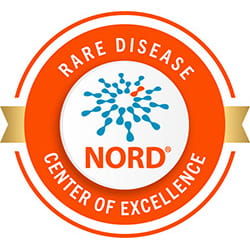World-Class Clinical Care, Education and Research
Mission: The Division of Human Genetics at Cincinnati Children’s leverages genomic technology to provide world-class clinical care, train the next generation of caregivers and researchers, and develop new therapies for our patients and others like them around the world.
We work at the forefront of genomic medicine and research to diagnosis even the rarest diseases and provide outstanding care, as well as discover and implement therapies to improve the health of all children. As a leader in pediatric health, our approach is to integrate a culture of genomics through institution-wide collaboration in both research and clinical initiatives that cross every subspecialty at Cincinnati Children’s.
 One focus of our division is the “Genetics of Time.” This allows us to concentrate on fetal development, premature birth, circadian rhythms related to sleep or taking medication, and mitochondrial disorders. These areas impact the clinical care we provide, as well as areas of research.
One focus of our division is the “Genetics of Time.” This allows us to concentrate on fetal development, premature birth, circadian rhythms related to sleep or taking medication, and mitochondrial disorders. These areas impact the clinical care we provide, as well as areas of research.
The Division of Human Genetics features three key areas:
Care
In our clinics, we use a precision-medicine approach so that our geneticists, genetic counselors, advanced practice and registered nurses diagnose, manage and treat genetic diseases in children and adults – taking into account individual variations and responses to treatment.
In addition, we provide comprehensive services through our Genetics and Genomics Diagnostic Laboratory, which offers leading-edge technology for biochemical, cytogenetic and molecular genetic testing for a variety of disorders.
Research
The world of genomics is evolving rapidly − and our investigators are at the front line of basic science discovery, as well as translational and clinical trial research. Our investigators’ ultimate goal is to bring genomics into medical care through discovery of better diagnoses, therapeutics and disease prevention. To do this, we use innovative methods to discover new genes and genetic mutations, diagnose and treat rare diseases, and gain deeper understanding of basic biological events, such as preterm birth or craniofacial development. Learn more about some of our key programs.
Education
The Division of Human Genetics is a leader in genetics education. Cincinnati Children’s offers a genetics specialty residency and a genetics fellowship training program. And the Genetic Counseling Graduate Program is one of the oldest and largest such programs in the United States.
We also welcome graduate students and postdocs from other areas – such as Development, Stem Cells and Regenerative Medicine Graduate Program, Biomedical Informatics and Immunology – who are interested in learning more about genetics and genomics.
In addition, we have a Grassroots Genomics Speaker Series – a series of videos explaining genomics and how it is used in pediatric medicine − and our Genomic Discovery & Translational Series of talks from outside speakers.
To learn more about genomics in the news, as well as about published research from our faculty, follow us on Twitter @CincyKidsGenomX.





